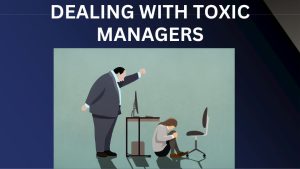The Insider Guide to Careers
Insider information, secrets and tips about getting hired and building careers. For employees and job candidates.
One common refrain of employees working in the industry, especially the tech sector, is that career opportunities decrease as one gets older. However, this observation is only a half-truth because, with age and accompanying mastery over business roles, the employee is talking about senior management job openings, not entry-level positions. As a result, there is a good chance that an above-average employee will receive multiple promotions with time. This phenomenon is specifically true for junior roles where time in the role and slightly better than average performance is enough to get you a promotion.
As one gets promoted, the chances of further promotion get smaller and smaller, as the structure of a company is inherently pyramidical, with one person at the top and a large number of employees at the lowest ranks. Moreover, the colleagues who fight for promotions at higher levels are also more capable than those competing at lower levels, as they have gone through multiple rounds of promotions to get to where they are. To sum it all together, the number of spots at more senior designations is much lower, and the competition is more ruthless. Hence, the chances of promotions at these senior levels are meager.
The big issue is typically for those employees who are in relatively junior roles, have yet to be promoted, and want to switch jobs. The problem for a recruiter is not the age piece but the compensation component. Assume that you are a recruiter, and if given a choice between a person in the thirties who currently makes less than the salary range and a person in the fifties who is near the top of the salary range, whom would you choose? There are a couple of reasons why the recruiter would prefer a younger person in some cases:
1) The older person needs to keep learning new skills, track what competitors are doing, and be up to date with the changing market for services. The younger folks have faced much tighter labor markets for jobs and education. For example, in the 1980s and 1990s, most people who never went to college could find manufacturing jobs in the US. This trend is no longer the case; you see people doing additional master’s degrees to find entry-level jobs in the services sector. Selectivity for top universities has also gone up dramatically. Because of these factors, younger people are always thinking of upskilling, are more curious, and are willing to learn. These applicant skillsets linked to the learning mindset are important signals for recruiters.
2) Most older employees stick around in one company for a long time, stay under the radar, get annual compensation hikes, and quickly find themselves at the higher end of the compensation range for their role. They are good enough not to get fired but not good enough to get promoted. After a few years, they get comfortable where they are and stop looking for jobs outside. I recommend that people interview for other roles every five years or so, not to move jobs but to get a sense of whether their skills are in demand in the market and also to know the external market compensation for their role.
3) There is more promise in a young person full of fire in their belly than an older person who is languid and has little enthusiasm. In a scenario where two employees do not have the necessary skills for the role, one older and one younger, selecting the younger person is a fair bet, as with time, their skill sets could improve. On the other hand, the older applicant had the time and never learned the skills, so expecting that person to pick new skills may be a lost cause.
While I have listed some of the apprehensions of the recruiter, none of these are insurmountable. What I recommend is for the older applicant to have an honest and straightforward discussion with the recruiter right from the beginning on the following aspects
1) The candidate has to show proof of learning new skills. It could be online courses, executive development programs, executive MBA degrees, etc.
2) The candidate should always show excellent awareness of the market dynamics and competitor products for the companies they worked in. Understanding every aspect of product development, sharing insights from the annual reports, and being aware of financial metrics from the balance sheet and P&L statement are always impressive, whether for junior roles or more senior roles. Only some candidates have the business acumen to have a meaningful discussion on these big-picture topics. Hence, this is an easy way to make a good impression.
3) Face interviews every five years to check your market compensation and how relevant your skills are. If you don’t get any response from recruiters, it is an early warning sign that your skills may be obsolete. You can then come up with a game plan to address these issues. If you get many offers, have an honest conversation with your trusted friends about the pros and cons of accepting the new job offer. I have devoted a post to this topic. Even if you decide not to take up the external offer, you now have the confidence to connect with your manager. You can let management know that you have external offers but still decided to stay with the company. Hint that you would like to learn new job skills. Companies love loyalty from employees. They can either put you on a fast track to promotion or move you to a lateral role where you can learn new skills (if you are not promotion ready).
4) A recruiter would love nothing more than an experienced employee willing to take up a junior role with a sharp cut in compensation. Recruiters value the experience and maturity that a more senior person would bring. Unfortunately, very few older employees are comfortable with this deal. Some of them think they deserve higher compensation and need to understand that the market pays everyone their fair market value. If the older candidates have the skills, they can find high-paying jobs, and if they don’t, they will have to settle for less. So if you are an older job applicant and are targeting a more junior role, assure the recruiter that you don’t have pre-expectations for the job and that you are okay with any compensation, as long as it is fair market comp for that role.
I have never seen any job applicant rejected for age-related reasons in any company I have worked with, nor have I heard any age-related criticism of any applicant during the hiring process. On the other hand, I have seen recruiters and interviewers be more sympathetic to older applicants and give them a long rope. For example, I have always selected unconventional and more senior candidates if given a chance – selecting people in their forties for entry-level software roles and people in their sixties to work on production shop floors.
For more, follow also my Substack and Careerbolt channels.



